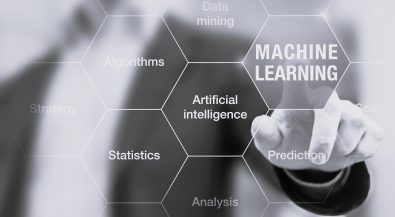News
23/02/2022
Companies and end-to-end Machine Learning

Machine Learning (ML), one of the most developed branches of Artificial Intelligence of the 21st century, consists of teaching computers to learn from data. To be more specific, algorithms are trained to find patterns and correlations within a large set of data, to make the best decisions and make forecasts based on that analysis. Just like human beings do.
Organizations from each industry develop analytics and ML use cases (e.g. voice assistant, personalized marketing, fraud detection, transportation optimization) that will deliver the greatest possible business impact. The development of a variety of ML use cases is becoming a must for most large enterprises and their Chief Data Officers (CDOs), along with data teams, are evaluated based on their contributions to these cases deliveries.
As it is possible to understand, many organizations face the challenge of generating an end-to-end ML lifecycle and, additional difficulties are faced when it comes to developing the right ones to make the highest impact possible.
But which are, specifically, the most common issues that organizations are facing regarding the development of ML?
After, interviewing 351 CDOs from 14 industries all over the world, four issues were addressed as the most common ones:
- Each company is developing ML models on its own, there is no shared knowledge between companies (55%) this results in an independent development and, therefore, the elaboration of an effective and impactful one is slower
- Inadequate collaboration between data science and production (39%) increases the possibility of the use of frameworks inadequate to the type of data that needs to be analyzed
- A multiplicity of tools and frameworks (32%) results in an increased difficulty in comparing the outcomes of the automatization process
- Infrequent refreshing of model data (27%) implies an increase in the unreliability of the data.









